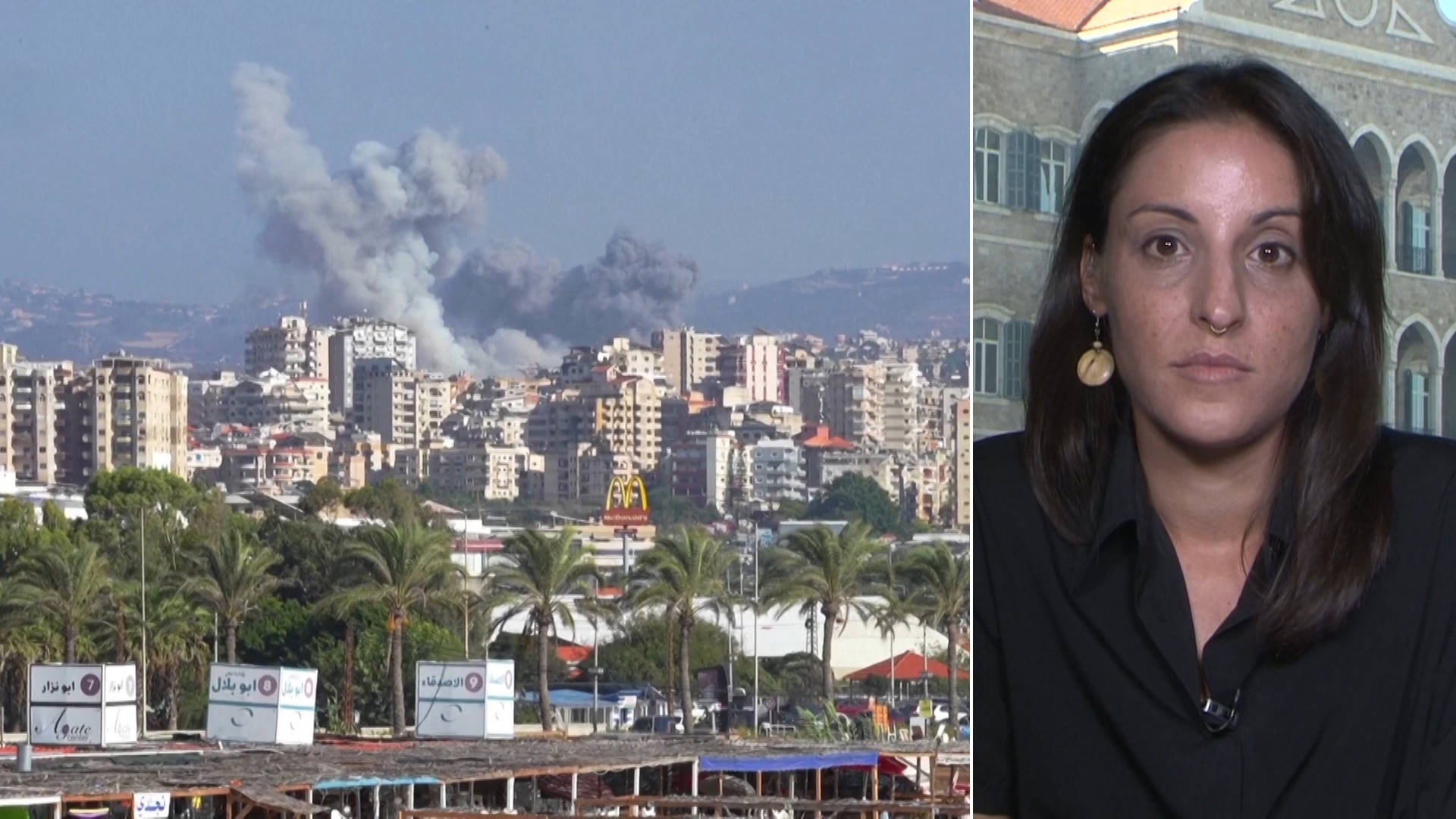Israel is continuing its bombardment of Lebanon and preparing for a possible ground invasion of the country, with the Netanyahu government rejecting a proposed 21-day ceasefire put forward by the United States, France, Canada, Australia, Japan, Qatar, the UAE and Saudi Arabia.
About 500,000 people in Lebanon have been displaced, and the Health Ministry reports at least 72 people were killed and nearly 400 wounded in Israeli attacks on Wednesday, bringing the death toll to over 620 in recent days.
“There is a lot of suffering. There is a lot of hardship right now,” says Beirut-based journalist Lara Bitar, who details how Israel has repeatedly attacked and invaded Lebanese territory going back decades.
“The source of this pain can be pinpointed to the presence of the Israeli settler state in our region that continues to wreak havoc in Palestine, in Lebanon and across most of the world.”



Does Hezbollah accept it?
NERMEEN SHAIKH:
LARA BITAR:
The call to action of boycotting Israel at the end is the valuable part of this quote.
I wouldn’t die on the hill of “Hezbollah is not targeting civilians or civilian infrastructure” for the fact that they do not have the rocketry capabilities for targeted strikes. Isreal clearly doesn’t either.
Have you seen any of the videos they have posted? I saw a few that were actually guided ! they problem I notice in media they never show attacks by hamas or hezbollah. While IDF doesn’t actually care what they hit and like to always claim to be right and accurate but we know from Gaza they are mostly lies which makes it hard to believe them anymore…
I haven’t seen those videos and I’d like to see them to be informed. Pls link.
I just know that even the US struggles with targeted ballistics not hitting civilians and I think any focus on that argument weakens her response. Israel’s mandatory conscription makes those standalone sentences mean even less.
Hezbollah has tried to deescalate by flagrantly violating UN resolution 1701 for decades.
As opposed to Israel also violating the UN Resolution by continuing it’s illegal occupation of Lebanese and Syrian territory? Hezbollah disbanding it’s armed wing doesn’t make sense when Israel continues it’s settler Colonialism and targeting of civilians. There is no guarantee Israel would stop, in fact they’ve given every reason that they would continue their atrocities.
What Lebanese territory does Israel occupy?
My bad, I confused it with the continued occupation of the Golan Heights, which is Syrian territory. The Israeli occupation of Southern Lebanon ended in 2000. However, there has still been disputes about what constitutes the border, such as Shebaa Farms. Since 2006 its been much more about Israeli incursions into Lebanon. Hezbollah is also very vocal about considering all occupations by Israel, such as Palestine and the Golan Heights, as illegitimate, so that’s also a factor.
https://www.aljazeera.com/news/2023/10/17/beyond-hezbollah-the-history-of-tensions-between-lebanon-and-israel
https://en.m.wikipedia.org/wiki/Israeli–Lebanese_conflict
Under UN Resolution 1701, the governments of Israel, Lebanon, and Syria have to negotiate about the border and Sheeba farms. On all maps from the French mandate, the Sheeba farms are part of Syria.
Israel attempted to negotiate this under Olmert and didn’t get a response.
Hezbollah doesn’t give a shit about Sheba farms. They explicitly want to destroy Israel. Just listen to what they say and write.
Start reading something else besides the notorious anti-Israel Al-Jazeera.
Hezbollah wants to destroy Zionism, that includes ending Israeli occupation of any people, from Lebanese to Syrian to Palestinian. Hezbollah only exists because of Israel.
1982
Israeli Withdrawal
It’s difficult to quote from the article, so read the full paper for more context and details
2006
Hezbollah’s ideology is both Anti-zionist and anti-judiaism, which Amal Saad-Ghorayeb can analyze and describe far better than I can. The anti-Judaist sentiment should absolutely be condemned and called out.
Anti-Zionism and Israel (Chapter 7)
Anti-Judaism (Chapter 8)